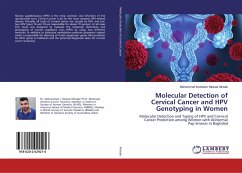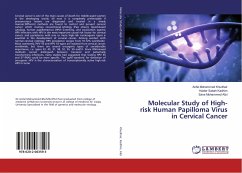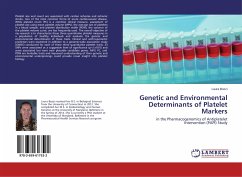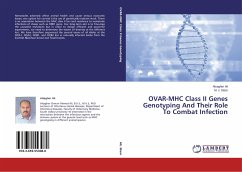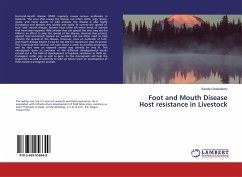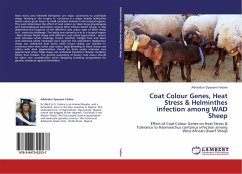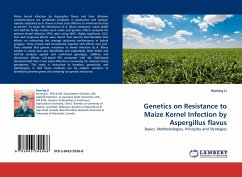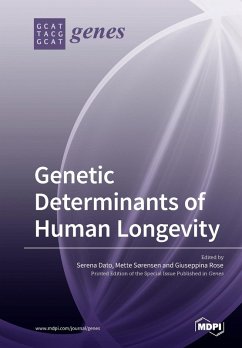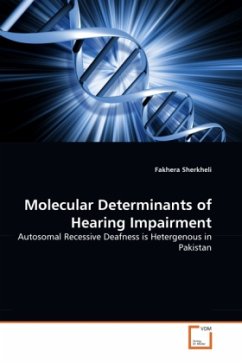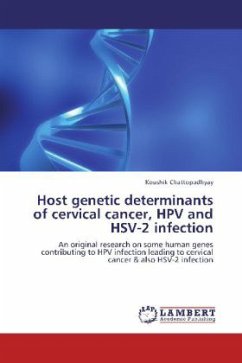
Host genetic determinants of cervical cancer, HPV and HSV-2 infection
An original research on some human genes contributing to HPV infection leading to cervical cancer & also HSV-2 infection
Versandkostenfrei!
Versandfertig in 6-10 Tagen
39,99 €
inkl. MwSt.

PAYBACK Punkte
20 °P sammeln!
Cervical cancer (CaCx), caused by human papillomavirus (HPV), is the second most common cancer in women worldwide. Although large numbers of women get HPV-infected only a small fraction develop CaCx pointing to co-factors including host genetics playing a role. The aim of this thesis was to investigate the role of genetic polymorphisms in the cell death pathway genes, Fas, FasL and CASP8 in CaCx, pre-cancers and HPV infection. The genes have also been investigated in herpes simplex virus type-2 (HSV-2) infection, a co-factor for developing CaCx. Another gene involved in macrophage recruitment,...
Cervical cancer (CaCx), caused by human papillomavirus (HPV), is the second most common cancer in women worldwide. Although large numbers of women get HPV-infected only a small fraction develop CaCx pointing to co-factors including host genetics playing a role. The aim of this thesis was to investigate the role of genetic polymorphisms in the cell death pathway genes, Fas, FasL and CASP8 in CaCx, pre-cancers and HPV infection. The genes have also been investigated in herpes simplex virus type-2 (HSV-2) infection, a co-factor for developing CaCx. Another gene involved in macrophage recruitment, CCR2 was also investigated. A case-control approach was used on South African black and mixed-ancestry population. Genotyping of the desired polymorphisms from peripheral blood was achieved using TaqMan assay, PCR-SSP and PCR-RFLP. Results were analysed using R, Stata 9 and Haploview 4.2. We show that genetic polymorphisms in these genes are differentially associated to CaCx, pre-cancers, HPV infection and HSV-2 infection. This is the first study reporting the role of Fas, FasL, CASP8 and CCR2 polymorphisms in CaCx in an African population and a non-HLA host genetic link to HSV-2 infection.



